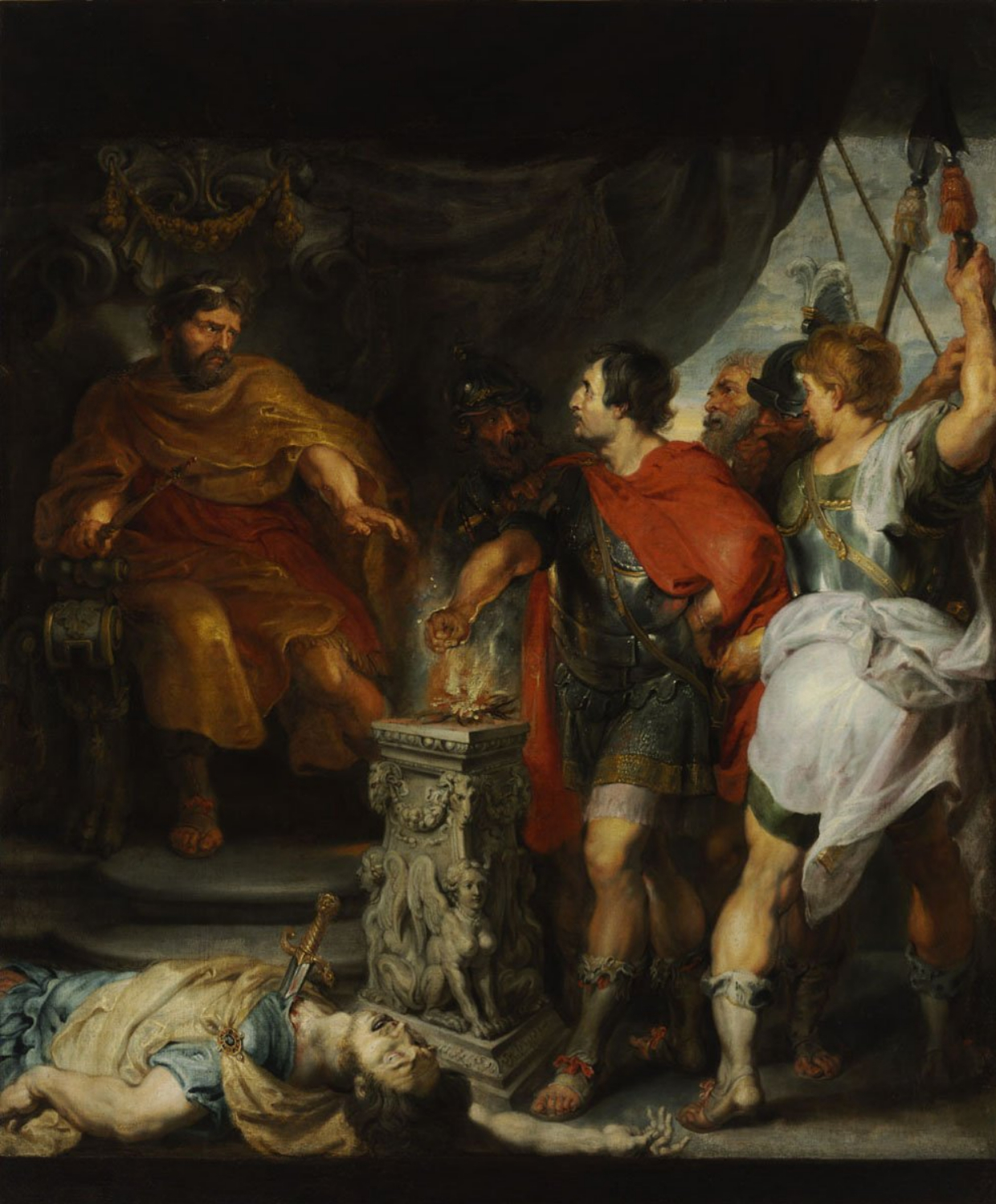Et facere et pati fortia Romanum est on:
[Wikipedia]
[Google]
[Amazon]
''Et facere et pati fortia Romanum est'' is a
 According to legend, a certain Mucius Cordus attempted to kill the Etruscan king
According to legend, a certain Mucius Cordus attempted to kill the Etruscan king Liv.2.12
/ref> In this way Mucius Cordus became an example for a brave and audacious Roman burgess. He is assumed to have got his byname “Scaevola” ("The “left-hand”) because of his act.
Page 641 (German)Page 168, 3,5 (German)
Latin words and phrases
Latin
Latin (, or , ) is a classical language belonging to the Italic languages, Italic branch of the Indo-European languages. Latin was originally a dialect spoken in the lower Tiber area (then known as Latium) around present-day Rome, but through ...
phrase meaning "It is the attribute of a Roman
Roman or Romans most often refers to:
* Rome, the capital city of Italy
* Ancient Rome, Roman civilization from 8th century BC to 5th century AD
*Roman people, the people of ancient Rome
*''Epistle to the Romans'', shortened to ''Romans'', a lett ...
to perform as well as to suffer mighty things." Its comes from Livy's ''Ab urbe condita
''Ab urbe condita'' ( 'from the founding of the City'), or ''anno urbis conditae'' (; 'in the year since the city's founding'), abbreviated as AUC or AVC, expresses a date in years since 753 BC, the traditional founding of Rome. It is an ex ...
'' 2, 12, 9.
Origin
 According to legend, a certain Mucius Cordus attempted to kill the Etruscan king
According to legend, a certain Mucius Cordus attempted to kill the Etruscan king Lars Porsena
Lars Porsena (or Porsenna; Etruscan: ) was an Etruscan king (lar) known for his war against the city of Rome. He ruled over the city of Clusium ( Etruscan: ; modern Chiusi). There are no established dates for his rule, but Roman sources often ...
, who was besieging Rome
, established_title = Founded
, established_date = 753 BC
, founder = King Romulus ( legendary)
, image_map = Map of comune of Rome (metropolitan city of Capital Rome, region Lazio, Italy).svg
, map_caption ...
. When the Etruscans caught him, he said “''Romanus sum civis''” (I am a Roman citizen) and continued with "''et facere et pati fortia Romanum est''". To prove his point, he held his right hand without flinching in a fire that the king had ordered to torture him. Porsena was so impressed by this, that he gave up the besiegement of Rome./ref> In this way Mucius Cordus became an example for a brave and audacious Roman burgess. He is assumed to have got his byname “Scaevola” ("The “left-hand”) because of his act.
Cicero
Marcus Tullius Cicero ( ; ; 3 January 106 BC – 7 December 43 BC) was a Roman statesman, lawyer, scholar, philosopher, and academic skeptic, who tried to uphold optimate principles during the political crises that led to the esta ...
was later famously to use the phrase '' civis romanus sum'' in a different context.
References
{{ReflistPage 641 (German)
Latin words and phrases